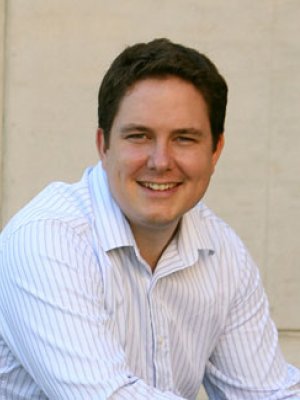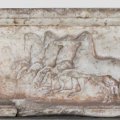
The growth of online learning has led a University of Queensland lecturer to question if there is any truth in the statement, “if you can be replaced by a video then you probably should be.”
Dr Jason Tangen of UQ’s School of Psychology has refused to be overshadowed by this online environment and recently received a Faculty of Social and Behavioural Sciences Teaching Excellence Award for his innovative approach to student learning, which includes adopting the approach of ‘flipped learning’.
The launch of free course sites such as edX, Kahn Academy, Udacity, and Coursera, whereby some enrolments have exceeded 160,000 students from 209 countries, means the bar has been well and truly raised when it comes to online lectures.
Dr Tangen’s goal was to flip the focus from ‘teaching’ to ‘learning’ and offer an active learning experience even more engaging than the online lectures provided by the brightest minds.
“Students can now watch Nobel prize winners, top professors and researchers from well-resourced universities like Harvard and MIT deliver lectures for free on the same content that I have been teaching in my courses,” Dr Tangen said.
Dr Tangen adopted the flipped learning approach when developing a new course called The Science of Everyday Thinking, (PSYC2371) where he incorporates best practice in learning and education.
“The ‘flip’ comes from assigning my online lectures as homework, leaving class time for discussing the material, working through problems, designing experiments, testing dubious claims, learning to read newspapers and media reports, and challenging students to think analytically,” he said.
“Now the classroom has become an interactive and personal experience where we have the time to exchange ideas, debate issues, and I can provide immediate and thoughtful feedback.”
By flipping the focus of the course from information transfer to a learner-focused design of
interaction and experience, the responsibility for gathering information now rests squarely on the
shoulders of the students.
“Students work independently on the lecture content and readings at home where they have the time and flexibility to reflect and assimilate the material before coming to class,” he said.
“Instead of ‘teaching by telling’, I have created a set of conditions that inspire students to learn independently.”
This new form of learning also assists students who would usually require ‘special needs’ services to attend university classes, as they can make use of the online lectures as a regular classroom resource, providing much more flexibility than traditional lectures.
“Students at a higher level benefit also, by creating a learning opportunity that is less focused on recording the detail of the live lecture, and more focused on forming concepts and interactively engaging in the classroom,” he said.
Dr Tangen’s philosophy is that students are not going to be passionate about a topic if their teacher is not passionate about teaching it to them.
Media: Dr Jason Tangen, T: (07) 3365 6774, E: jtangen@psy.uq.edu.au or Kristen Bastian, Senior Marketing and Communications Officer, T: (07) 3346 9279, E: k.bastian@uq.edu.au
.jpg)



